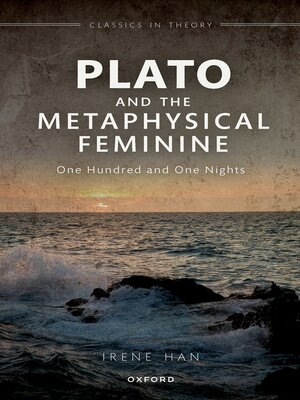Plato and the Metaphysical Feminine
ebook ∣ One Hundred and One Nights · Classics in Theory Series
By Irene Han

Sign up to save your library
With an OverDrive account, you can save your favorite libraries for at-a-glance information about availability. Find out more about OverDrive accounts.
Find this title in Libby, the library reading app by OverDrive.



Search for a digital library with this title
Title found at these libraries:
| Loading... |
Plato and the Metaphysical Feminine offers a new interpretation of the role of the female and the feminine in Plato's political dialogues—the Republic, Laws, and Timaeus—informed by Deleuze's film theory and Irigaray's psychoanalytic feminism. Irene Han reads Plato against the grain in order to close the gap between the vitalists and Plato, instead of magnifying their differences. Han explores the ambivalence that the vitalist
tradition, Irigaray, and Derrida have towards Platonism. The application of Deleuzian and Irigarayan concepts to the ancient texts produces a new reading of Plato, focusing on the centrality and importance of motion, change, sensuality, and becoming to Platonic philosophy and, thereby, reinterprets Platonic philosophy in the direction of
Heraclitus rather than Parmenides: as feminist rather than masculinist, and as mimetic. It therefore prioritizes Heraclitean principles of movement and flux over Form, the feminine over masculine, and materiality, feeling, or sensation over abstraction and universal essence. Han's exploration illustrates how, in Plato's thought, the feminine maps itself onto the plane of phenomena—a plane associated with vitalist themes such as motion, tactility, and change (metabolē). Platonic
metaphysics is recontextualized by illustrating how Being expresses itself through processes of (feminine) becoming. With this reformulation, the resulting account of Platonic Being destabilizes any purported Platonic dualism.






